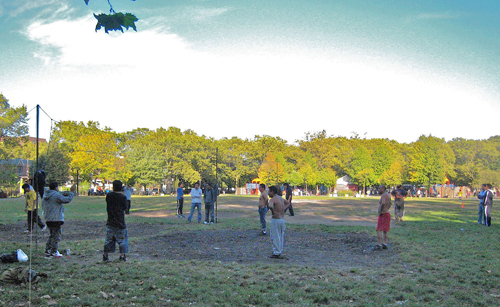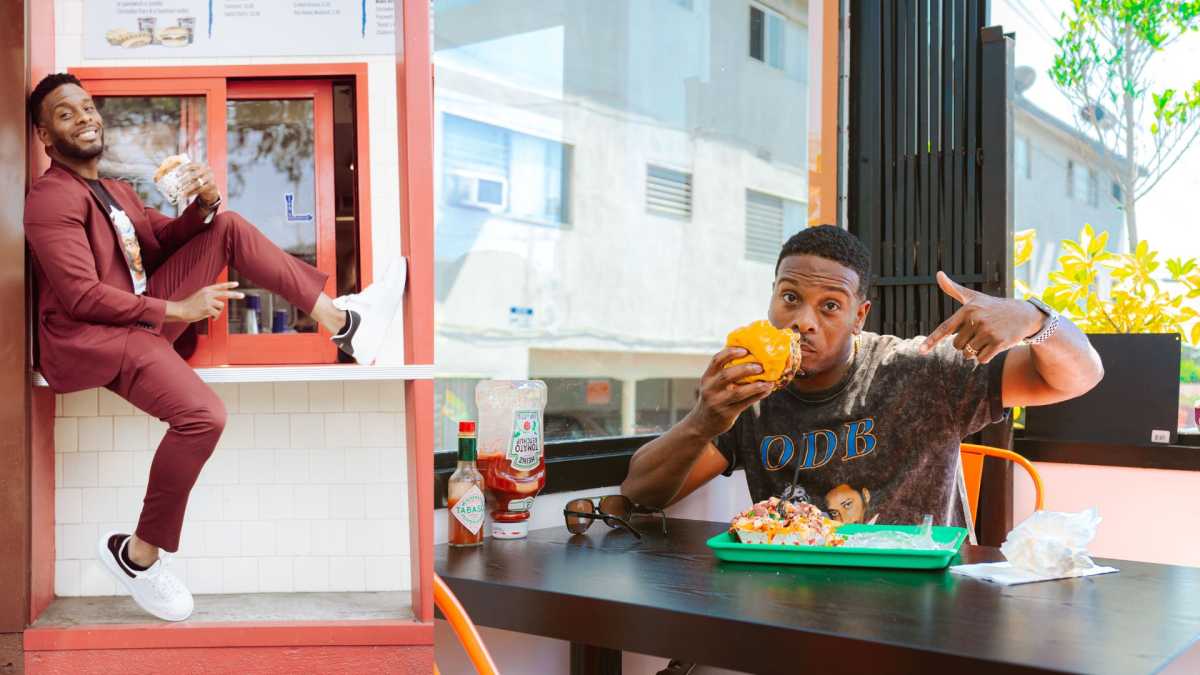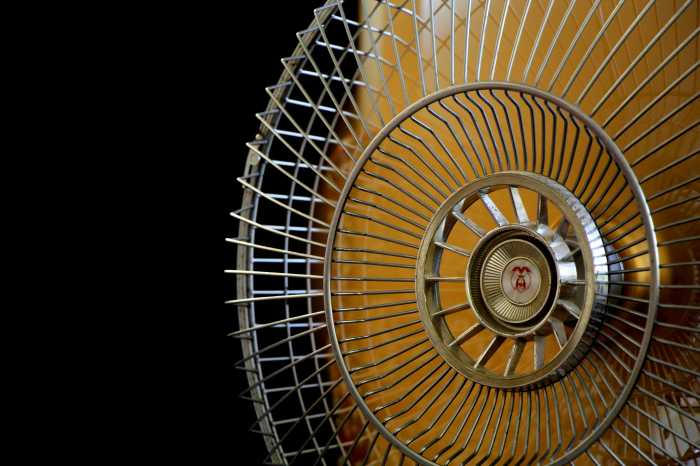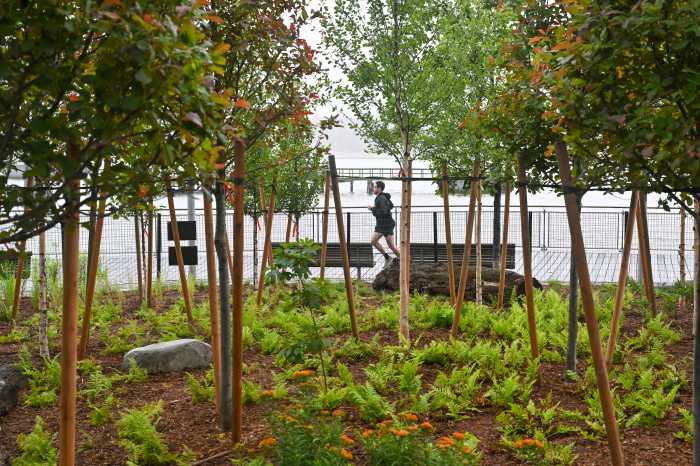The city appears poised to spend $2.6-million to turn a decaying Williamsburg park into a destination.
The redesign is part of a long-term plan by locals to improve the busy green space bordered by Maspeth Avenue, Morgan Avenue, Olive Street, and Sharon Street, given a 46-percent population jump in the 14-block area east of the park.
Gentrifiers make up 70 percent of that new population, thanks to a flurry of new developments between Meeker and Metropolitan avenues.
Old and new residents will be pleased with the tweeks: a new play area for dogs, a doggie water fountain, a concrete skate park near Sharon Street, a quarter-mile jogging pathway, resurfaced tennis and basketball courts, and two new volleyball courts — the first in Williamsburg.
“We don’t have any legal volleyball courts in Greenpoint and Williamsburg and now we’re going to have a professional tournament-level volleyball court there,” said North Brooklyn Parks director Stephanie Thayer, whose group will chip in some money for the courts, and barbecue stations, and used coal bins.
The capital money was allocated by Councilmember Diana Reyna (D–Bushwick), who said construction would begin in summer, 2013.
“It has seemed that the waterfront has received all the attention for its open space — but we’ve always wanted to spur development for the whole community,” said Reyna.
Neighbors are indeed pleased.
“This park will most definitely be enjoyed by all age groups,” said Cooper Park Houses resident Karen Leader. “We will now be able to barbecue outdoors in a park within our neighborhood.
And the city is planning even larger reconstructions.
After phase one is completed, the next phase would include new trees and flower beds, renovate the bathroom in the center of the park, build a stage for events, and replace the well-worn oval lawn near Olive Street with synthetic turf.
Resident Brian Butnick, who moved to Maspeth Avenue because of the park, welcomes the changes.
“I was pleased that the turf field and outdoor stage got on the list,” said Butnick.
Cooper Park has been the neighborhood’s playground for 116 years, after the heirs of Peter Cooper sold the site of his former glue factory for a cool $55,000.
For much of the century, the park included a roller-skating track, horseshoe and shuffleboard courts, wading pool, and even two softball diamonds.
The last major renovation, replacing the softball fields and pool with basketball and handball courts, occured in 1965 — but the park has since become dilapidated.

























